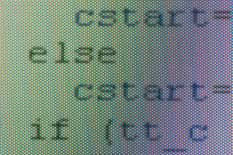Editorial - Open Access and accessing openness
Seminar.net enters it’s fourth year, and has reached a state of maturity in a number of meanings:  it receives manuscripts from all continents, the articles are read from 134 countries, of which India represents the highest number of readers, a number of articles have been read by more than 10 000 interested persons, and the frequency of issues is now three per year, and will reach four by next year. Interested parties now approach us in order to learn about our policies and practices.
it receives manuscripts from all continents, the articles are read from 134 countries, of which India represents the highest number of readers, a number of articles have been read by more than 10 000 interested persons, and the frequency of issues is now three per year, and will reach four by next year. Interested parties now approach us in order to learn about our policies and practices.
 it receives manuscripts from all continents, the articles are read from 134 countries, of which India represents the highest number of readers, a number of articles have been read by more than 10 000 interested persons, and the frequency of issues is now three per year, and will reach four by next year. Interested parties now approach us in order to learn about our policies and practices.
it receives manuscripts from all continents, the articles are read from 134 countries, of which India represents the highest number of readers, a number of articles have been read by more than 10 000 interested persons, and the frequency of issues is now three per year, and will reach four by next year. Interested parties now approach us in order to learn about our policies and practices.